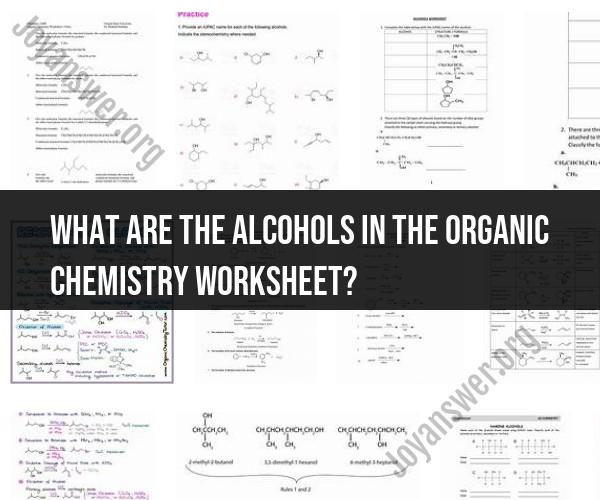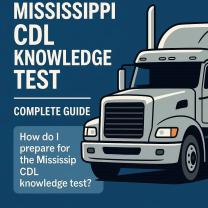What are the alcohols in the organic chemistry worksheet?
I'd be happy to provide you with some information and examples related to alcohols in organic chemistry to help with your study. Here are some key concepts and examples related to alcohols:
Alcohol Functional Group:
- Alcohols are organic compounds that contain a hydroxyl (-OH) functional group attached to a carbon atom.
General Structure:
- The general structural formula of an alcohol is R-OH, where R represents an alkyl or aryl group.
Classification of Alcohols:
- Alcohols can be classified into three main types based on the number of carbon atoms bonded to the carbon atom bearing the -OH group:
- Primary Alcohols: The carbon atom bearing the -OH group is bonded to one other carbon atom.
- Secondary Alcohols: The carbon atom bearing the -OH group is bonded to two other carbon atoms.
- Tertiary Alcohols: The carbon atom bearing the -OH group is bonded to three other carbon atoms.
Naming Alcohols:
- The common naming convention for alcohols is to add the suffix "-ol" to the name of the parent hydrocarbon.
- For example, CH3OH is methanol, CH3CH2OH is ethanol, and CH3CH2CH2OH is propanol.
Physical Properties:
- Alcohols have higher boiling points compared to hydrocarbons of similar molecular weight due to hydrogen bonding between alcohol molecules.
- They are often polar compounds.
Chemical Reactions:
- Alcohols can undergo various chemical reactions, including:
- Oxidation: Alcohols can be oxidized to form aldehydes or ketones, depending on the type of alcohol.
- Dehydration: Alcohols can undergo dehydration reactions to form alkenes.
- Esterification: Alcohols can react with carboxylic acids to form esters.
- Substitution: Alcohols can undergo substitution reactions, such as the Williamson ether synthesis, to form ethers.
Examples:
Primary Alcohol: Ethanol (CH3CH2OH) is a primary alcohol. It can be oxidized to form acetaldehyde (CH3CHO) or further oxidized to form acetic acid (CH3COOH).
Secondary Alcohol: Isopropanol (CH3CHOHCH3) is a secondary alcohol. It can be oxidized to form acetone (CH3COCH3).
Tertiary Alcohol: Tertiary butanol (CH3C(CH3)3OH) is a tertiary alcohol. It does not undergo oxidation to form aldehydes or ketones under normal conditions.
Dehydration Reaction: When ethanol is heated with a strong acid catalyst, it can undergo a dehydration reaction to form ethene (C2H4).
These are some fundamental concepts and examples related to alcohols in organic chemistry. You can further explore reactions, mechanisms, and synthesis involving alcohols to deepen your understanding of this important functional group.













